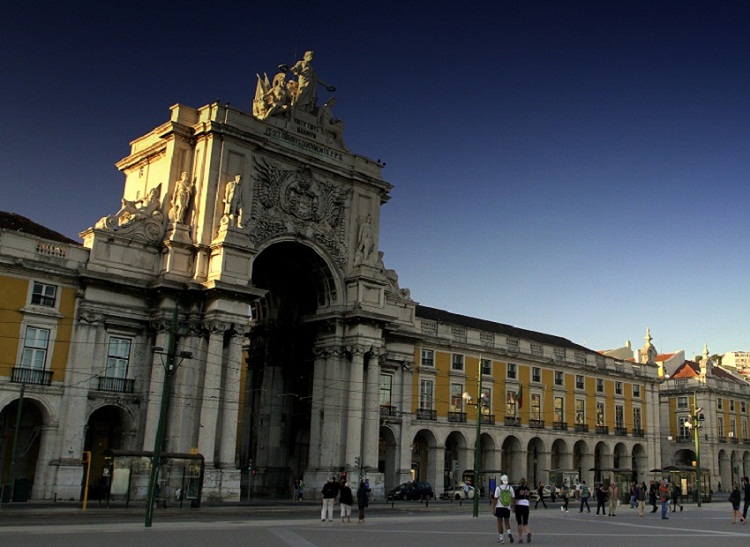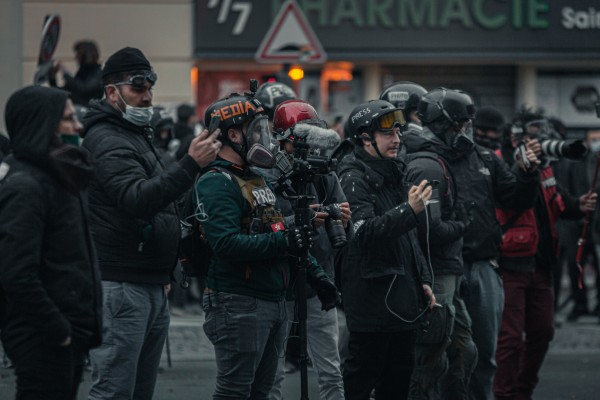A trend continues: in January of this year, the European Court of Human Rights (ECtHR) delivered yet another ruling against Portugal in a case involving a journalist sued for defamation. On this occasion, the journalist in question was José Manuel Fernandes, publisher of the online news site Observador. In 2010, the Lisbon Court of Appeal ordered Fernandes, then with the newspaper Público, to pay €60,000 in damages to the then-president of the Portuguese Supreme Court, Noronha de Nascimento. The case related to a 2006 editorial, entitled “The Strategy of the Spider”, in which Fernandes accused Nascimento of having woven a web of connections and favours to support his climb to power.
Nascimento’s lawsuit against Fernandes stood out not only for the disproportionate damages claim – the original demand was €125,000 – but also for the fact that the suit also named Fernandes’ wife as a co-defendant, despite her having had nothing to do with the editorial’s publication.
The ECtHR ruled that the Portuguese courts had failed to establish that the interference in Fernandes’ right to freedom of expression was necessary in a democratic society, and criticised both the high damages award and the targeting of Fernandes’ wife.
As part of its ongoing coverage of the abuse of defamation laws to limit journalistic work in Europe, IPI recently spoke to Fernandes about his more than ten-year legal tussle, first with Nascimento and later, in Strasbourg, with the Portuguese state.
IPI: What was your reaction to the European Court of Human Rights’ ruling in your case?
Fernandes: Very positive, very happy. This decision was important not so much because of what it represented for me but because of what it means for press freedom in Portugal. There are several aspects of the ruling that are particularly important. First, it reinforces the principle that judges are not above criticism – on the contrary. It emphasises that the higher the office one exercises, the more open one must be to public scrutiny, even when that scrutiny is harsh and direct, as was the case with my text. The ruling also harshly criticises the Portuguese criminal justice system, which ordered compensation at a level commonly applied in murder cases, something that the Court found disproportionate. Finally, it contained a clear condemnation of the Portuguese state for having accepted that the case involved my wife, as a form of additional intimidation. The Court viewed the involvement of my family in the case as representing a serious attempt to limit my freedom as a journalist.
IPI: How did the original case against you affect you?
Fernandes: The organisation that I worked for at the time, the newspaper Público, took over the case, as it always does in order to protect the freedom of its journalists. For that reason, I did not have financial or professional problems, and I also had the solidarity of the company and of my colleagues. As it was, unfortunately, not the first case that I had faced, I was realistic, knowing that the power of the judge I had criticised would probably lead to my losing the case in Portugal and, later, to my winning the case at the European Court of Human Rights. That’s the way things are in my country, unfortunately.
IPI: The European Court of Human Rights has ruled against Portugal in a relatively high number of cases involving journalists and defamation over the past two decades. Based on your experience, what do you see as the problem with the way that Portuguese courts approach such cases?
Fernandes: The Portuguese courts have issued poor rulings against press freedom too many times. In addition, many public officials still think that they can intimidate journalists through criminal or civil cases, which explains why there are so many pending cases. Moreover, despite rulings from the European Court of Human Rights, many judges continue to think that they should give more importance to the defence of honour and reputation than to press freedom and freedom of expression. The judge who filed the case against me was one of them: he wrote articles claiming that in Portugal too little importance was given to the protection of honour, i.e., claiming that Portuguese courts should treat journalists even more severely.
IPI: This case is nearly 10 years old. Have things changed in Portugal in terms of press freedom since then?
Fernandes: It seems to me that, with regards to the courts, nothing has changed. There continue to be too many cases, even if there are fewer convictions. But there is significant pressure on journalists, especially through a rise in civil cases, which allow plaintiffs to request high levels of compensation without needing to prove that a crime in the form of abuse of press freedom occurred. These are the cases that worry me the most, because they create greater pressure on media companies at a time in which all of them are facing financial difficulties.
Apart from this, the political climate has improved – during the time of former Prime Minister José Sócrates (2005 to 2011) pressure on news outlets was greater, even asphyxiating – but on the other hand the economic situation has worsened, to the point that today there are, generally speaking, fewer resources for investigative journalism.
IPI: What do you think needs to change in Portugal to ensure better protection for the right of journalists to criticise and scrutinise those in positions of power?
Fernandes: The problem in Portugal is not the law, which generally speaking protects freedom of expression. Some details could be improved, namely those related to access to court cases during the initial inquiry phase, but the legal framework is good. The same cannot be said for the way that some judges interpret the laws, but that is something that will only be improved through years of democratic culture (and possibly more cases at the European Court of Human Rights).
A significant difficulty we face is the crisis of the business model in the majority of media companies. Many of them are in a fragile financial state, or are at least under pressure, which makes them most susceptible to political and economic pressure. This situation is not easy to change, in spite of some new online projects, such as Observador, which I publish, although these do represent a breath of fresh air and show that there is hope for quality journalism.
More on defamation laws in Portugal:
IPI report highlights need for defamation reform in Portugal
Expert: Portuguese libel laws reflect ‘authoritarian concept of power’
Relatório: Criminalização da Difamação em Portugal
Liberdade de expressão, direito da comunicação social e difamação



